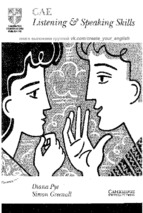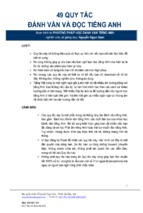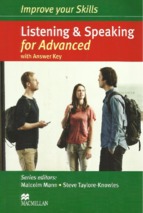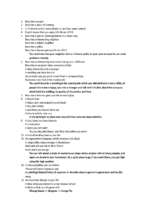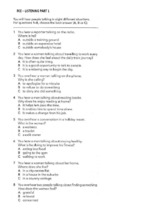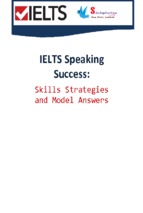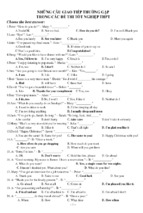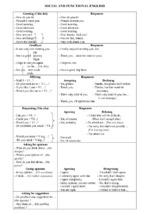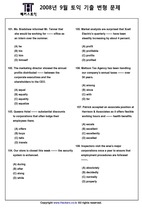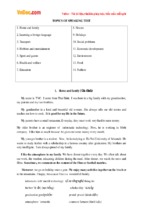English for
Telephoning
EXPRESS
SERIES
David Gordon Smith
OXFORD
O XFORD
ACKNOWLEDGEMENTS
U NIVER S IT Y PRESS
Great Clarendon Street, Oxford
OX2 6DP
Oxford Univers ity Press is a department of t he University of Oxford.
It furthers the University's objective of excellence in research, scholarship,
and education by publishing worldwide in
Oxford New York
Auckland Cape Town Dar es Salaam Hong Kong Karachi
Kuala Lumpur Madrid Melbourne Mexico City Nairobi
New Delhi Shanghai Taipei Toronto
With offices in
Argentina Austria Brazil Chile Czech Republic France Greece
Guatemala Hungary Italy Japan Poland Portugal Singapore
South Korea Switzerland Thailand Turkey Ukraine Vietnam
and OXFORD ENGLISH are registered trade marks of
Oxford University Press in the UK and in certain other countries
OXFORD
@
Oxford University Press
Adapted from
@
2007
Engfish rorTeJep~by
David Gordon mith
CorneIsen Verlag GmbH & Co. OHG. Berlin 2004
The moral rights of the author have been as erted
Database right Oxford University Pres (maker)
First publis hed
2007
2011 2010
10 9 8 7 6 5
No unauthori zed p hotocopying
lic:ation may be reproduced.
any. rm or by any
means, withom the prior
in "71
0 Oxford University
Press, or as expre sly permi eC by LTh·. or UDder terms agreed \vith the
appropriate reprographi ri
o!'r'clliza ·on. Enquirie concerning
reproduction ou 'de the scope 0
e above should be ent to the
ELT Rights Departmen Oxford Universiry Press, at the address above
You must not c:irrula e this boo ' in any other bi nding or cover
and you mu t impose this same condition o n any acquirer
Any web ite referred 0 in this publication are in the public domain
and their addresses are pro\;ded by Oxford University Press for
information only. Oxford Universiry Pre s disclai ms any res ponsibility
fo r t he content
I SBN " 3 : 9
0 '9 4579
')
Type et by Oxford University Press
in Meta
Prin ted in China
o
MultiROM
Engtlsh for Telephoning is accompanied by a MultiROM which
has a number of features.
Interactive exercises to practise useful phrases, vocabulary,
and communication through your computer.
listening extracts. These are in enhanced audio format that
can be played on a conventional CD·player or through the
audio player on your computer.
Useful documents including an A·Z word list in PDF format that
you can pri nt out and refer to,
If you have any problems, please check the technical support
section of the readme file on the MultiROM.
mustrarions by Jaquie O'Nei ll
Photo credits: Oxford Un ivers ity Press , Classet
Coverimdgesrourtesyof Corbis (main image/Kevin Dodge), Getty
Images (bottom left/Justin Pumfrey/Iconica), and Punchstock
(top left/Photodisc)
Contents
PAGE
5
UNlTnTLE
TOPICS
IMGUAGE nps AND S1RA1EGlES
I'Sha11l .ut you
Telephoning basics: identifying
yourself, getting through
Making excuses
Dealing with communication problems
• Using first names
• Giving bad news (I'm afraid,
I'm sorry, actually)
'Could you spell
Exchanging and checking information
Spelling over the phone
Saying email addresses
• How to be less direct
• Active listening strategies
'Let me get back
to you on that.'
Voicemail greetings
Leaving and taking messages
Prepositions
• How to structure a message
• Referring to previous communi cation (reported speech)
'When would suit
Making and confirming arrangements
Saying times and dates
More prepositions
Mobile phone calls
• Small talk
• Changing an arrangement
(politeness strategies)
'I'm very sorry
about that.'
Making and dealing with complaints
A technical support hotline
Tips for telephone customer care
• Strategies for complaining,
apologizing, and solving
problems
'How does that
Making and reacting to proposals
Reaching agreements
• Talking about possibilities
• Hedges (probably, I would say ..-)
• Turn-taking
through?'
12
19
26
34
40
I
I
I
I
I
that for me?'
you?'
sound?'
PAGE
APPENDIX
46
Test yourself!
Partner Files Partner A
Partner Files Partner B
Answer key
Transcripts
Useful phrases and vocabulary
48
50
52
57
62
About the book
In today's world there are ve ry few jobs th at do not involve the da ily use of t he
tele phon e - and due to globali zation, the langu age used on th e t elephon e in business
contexts is increasingly English. Even for people with a high level of English, speaking
on the telephone presents a particular set of difficulties, for example sound quality. Not
being able to see the body language of the person you are speaking to also makes
telephone communication more problemati c th an a face-to-face conversation. However,
by learning some of the conventio ns of the la ngu age of telephoning you can overcome
some of these difficulti es and develop your ability t o hold efficient telephone
conversati ons .
English for Telephoning offe rs you trainin g in how to sequence a conversa tion and in
strategies for co mmuni ca in g by te lep hone, as well as teaching ty pical exp ressions that
will allow you to speak on th e te lephone successfully and with co nfide nce.
English for Telephoning consists of six units that each deal with specifi c area s related
to communicating by te lepho ne. The book is structured so that the more basic skills are
dealt with at the beginning of the book and it becomes progressively more advanced.
However, the sequence is not fixed and the user can choose the units most relevant to
their needs.
Each unit begins with a Starter, which consists of a quiz or a questionn aire that allows
you to analyse your own use of the telephone. There are realistic listening exercises
which offer practice in listening comprehension as well as presenting language and
communication strategies. Throughout the units there are exercises that allow you to
review your telephone English, learn new expressions and vocabulary, or to practise
core grammatica l structures. The role plays give you the opportunity to put all you have
learned into practice. At the end of each un it there are listen ing and reading activities
designed to generate interesting conversations related to the theme of the unit. These
are called Output. Finally, the book closes with a fun crossword to Test yourself! on all
you have learned over the previous six units.
The MultiROM contains all the Listening extracts from the book. These can be played
through the audio player on your computer, or through a conventional CD-player. In
order to give yourself extra listening practice, listen to it in your car. The Interactive
exercises let you review your learning by doing Useful Phrases, Vocabulary, and
Communication exercises on your computer, this will be parti cularly valuable if you are
using the book for self-study. There is also an A-Z wordlist with all the key words that
appear in English for Telephoning. This includes a colum n of ph onetics and a space fo r
you to write the translations of the words in your own lan gua ge.
In the appendices of English for Telephoning yo u wi ll fin d th e Partner Files for the role
plays, and the Answer key so that you can check your own answers if you are working
alone. There are also Transcripts of the listen ing extracts and three pages of Useful
phrases and vocabulary, whi ch can be used as a handy reference when speaking on
the telephone at work.
15
'Shall I put you through?'
I
STARTER
Work with a partner. Ask him or her the questions below and make a note of the answers.
Then tell the class what you found out.
1
How often do you make phone calls in English?
2
When was the last time you made or received
a phone call in E nglish? How was it?
3
Who do you normally speak E nglish to on the
phone? Are they native speakers or non-nati w
speakers of English?
4
What do you find most difficult about telephoni ng
in English?
5
Describe your worst experience with an English
phone call.
AUDIO
1
Three people are calling the company Micah Information Systems.
Listen to the three dialogues and complete the table.
CALL 1
Who is calling?
Who does he/she want
to speak to?
Does he/she get through?
If not, why not?
What will happen next?
British English
American English
The line is engaged .
mob ile (phone)
The li ne is busy.
cell (phone)
CALL 2
CAll )
6
I UNIT 1
'Shalll put you through?'
AUDIO
2
Listen again and complete the sentences from the dialogues.
1
Micah Information Systems. Sylvia _ _ _ _ __
2
1'11 _ _ _ _ _ _ Mr Seide you _ _ _ _ _ _ __
3
It's Karen Miller _ _ _ _ __
4
I actually _ _ _ _ _ _ to speak to Maria.
5 Just
on a moment while I make the
6
I'm _ _ _ __ _ Maria's lin e is _ _ _ _ __
7
I'll try _ _ _ __ _ Iater.
8
Let me just _ _ _ __ _ a pe n.
9
Nice to
from you.
I'm actua lly talking to someone on the other _ _ _ _ __
10
Which sentences (1-10) can be used:
a
to say who you are? ~
e to say that somebody (or you) can't
b to open a conversation politely? ___
c
talk now?
to say who you want to speak to? ___
f
d to put a caller through to another person? ___
3
to say you will call again later? _ __
g to take or leave a message? _ __
Match the two parts to make questions from the dialogues.
1
Could I speak
a my mobile number?
2
Can I take
b through to her?
3
Could you ask
c have your number?
4
Could you tell me
d back in ten minutes?
5
Does Mr Seide
e your name again?
6
Is she there
f
7
8
Shall I put you
g ask what it's about?
Can I just
h at the moment?
9
Can I call you
to Jorg Seide, please?
10
Have you got
him to call me back?
a message?
a.h
Now match these answers with the questions. Sometimes more than one answer is possible.
A Certainly.
G Yes, she is.
B Yes, he does.
H I'm afraid he's in a meeting.
C Sure, no problem.
I need to ask her about the project
D My name is John Ellis.
meeting next week.
E Yes, I have.
Yes, please.
F That would be great.
UNIT 1
4
There are usually two ways of saying the same thing: a formal way, or a less formal way.
Find pairs of expressions with the same meaning and complete the table.
Car:! I 5J3eak to Bob, pteaseT
Thanks.
What's it about?
Can I just ask what it's about?
Certainly.
CSl:lIEl I ~peak: to Bob, please?
Could you please hold?
Hang on a moment.
Shall I put you through to her?
Sure.
Do you want to speak to her?
MORE FORMAL
Thank you.
LESS FORMAL
Could I speaK to e>ob. please?
5
'Shall l put you th rou gh?'
Can I speaK to e>ob. please?
There are different ways to give our names on the telephone. Match the sentences with the
explanations. (Careful: one sentence below is not used on the telephone!)
1
This is Gordon Wallis.
a
You say this when you answer the phone.
2
It's Gordon (Wallis) here.
b
You say this when you call a company and yo u
c
You say t his when you call someone you know.
3
Here is Gordon Wallis.
4
Gordon (Wallis) speaking.
don't know the person who answers the pho ne.
USING FIRST NAMES
Whether we use fi rst names or surnames (family names) with people in English normally depends on th e
relationship we have with them. Here are some tips.
• As a general rule, do what the other person does.
So if the other person uses your first name, use
their first name when you speak to them . One
important exception : if the other person has a
much higher status than you (for example if you
are a secretary and they are a manager) then
sometimes it is better to use their surname, even
if they use your first name. It depends on the
company culture.
• If it is the very first time yo u speak to a perso ,
you should probably use the ir surname.
• If you have had contact with the person e e
(even if it was only on th e phone), yo
normally use first names.
• If the person is an importan busi ess co
you should defi nitely try 0 use
appropriate. It is a sign 0 a d ose
relatio nsh ip.
010
6
Look at - or listen to - the three phone calls in exercise 1 again.
and who uses surnames? Why?
o u.se.s first am e.s,
I7
8
I UNIT 1
'Shall I put you through?'
GIVING 'BAD' NEWS
It is very common for native speakers to use I'm afraid or I'm sorry when giving 'bad' news, for example when
saying someone is not available.
I'm afraid Mr Seide is in a meeting.
I'm sorry, but Mr Seide is in a meeting.
If you do not use I'm afraid or I'm sorry, the sentence sounds very direct and impolite to a native speaker.
The word actually is also often used to make a statement more polite. For example, it can be used :
• instead of saying the word no. A: Does he have your phone number? B: Actually, I don't think he does .
• when we change the subject (e.g. when we change from small talk to talking business). Your holiday
sounds fantastic. Listen, Sandra, I actually wanted to speak to Maria.
• to say something which is inconvenient or annoying for the other person, in a polite way. Can I call you
back? I'm actually talking to someone else on the other line.
Careful: actually is not the same as current(ly) !
7
Rewrite the highlighted sentences below with I'm afraid or actually.
1
I'm trying to get through to Jake Woodward. He asked me t o call him this morning.
I'm actually tryin9 to get throu9h ...
2
Marie Dupont. You're fro m France, aren't you? - No, I'm from Belgium .
3 Can I talk to Kevin Shields? - He's not here.
4 Would you li ke t o leave a messa ge? - No, I'll call back later.
5 Can I call you tomorrow? - I won't be in the office tomorrow.
6
8
Heather's line is engaged . Shall I tell her to call you back?
Look at the situations below and make excuses for why your boss doesn't want to come to the
phone. Try to use I'm afraid, I'm sorry, or actually in each sentence. Remember that you don't
always need to tell the truth when making an excuse!
EXAMPLE
EXCUSES
I'm afraid she's unavailable.
She 's actually out of the
office today.
having lunch
out of the office today/ this afternoon
on a business trip
in a meeting
on another line
4-------
UNIT 1
9
'Shall I put you through?'
Work with a partner to practise the dialogue below.
A
B
Answer phone.
Say hello and make some small talk.
Change subject and ask to speak to somebody.
Respond.
Person is unavailable. Say why
and offer to take message.
~
Take message.
AUDIO
5 - 12
10
Say thank you and goodbye.
Often when we telephone we have to deal with communication problems. Listen to the dialogues
and match them with the problems. Sometimes more than one answer is possible.
CALL
a The caller is speaking too quietly. . . .................... .. . .. . .. . . .. .... . 0
b The person called didn't understand what the caller said . . . ...... ... . . . . .. . ... . [J
c The person called wants the caller to say something again . .... ... . . ... ... . . ....
0
d The caller is speaking too fast. ............. .... . .. .. .. . ..... . . . . . . . ....
0
e The caller has called someone by mistake . ... . . . . . .. . . . . . . . ... ........ . ... . 0
f
The person called doesn't know how to write a word . . .... ..... .. .... .. . .. ....
0
g The phone itself is making a lot of noise . . .... . .. . ... . .. .... .... ... . .. . . . . . 0
h The previous call was cut off and the caller has to call the other person back. . . ......
0
AUDIO
5-12
Now complete the extracts from the dialogues with words from the box. Then listen again to check
your answers.
slowly • up • cut • line • catch • spell • could • wrong
1
Sorry, I didn't
that.
2
Sorry,
please?
you re peat that,
Sorry, can you speak
a bit, please?
4
Sorry, I think yo u have th e
number.
5
Sorry, this is a really bad
6
7
Sorry, could you
for me, please?
o .
Sorry, we go
that
8
Sorry, (o ld 0
say
a
I9
10
I UNIT 1
11
' Shalll put you through?'
Work with a partner to make two phone calls. Look at the Useful Phrases below before you read
your role card in the Partner Files.
1il;1@'4;,m*
t
Partner A File 1, p. 48
Pa rtner B File 1, p. 50
-
USEFUL PHRASES
12
Giving your name
Gail jones speaking.
This is Robert Smith from ABC Enterprises.
Hello, jane. It's Elena Gonzalez here.
Making the connection
Sha ll I put you throu gh t o him/her?
Can I just ask what it's about?
Cou ld you please hold?
just ha ng on a moment wh ile I make the connection .
Getting through to the right person
Could/Can I speak to Mark, please?
I'd like to speak to Ellen Bake r, please .
I actually wanted to speak to Pat.
Is Pascal there at t he moment?
When the person isn't available
I'm afraid hi s/h er li ne is engaged .
I'm afraid Pat isn't availab le at the moment.
I'm afra id she is in a meeting.
Can I take a message?
Woul d you like t o call back later?
Complete the crossword , then rearra nge the letters in the darker squares to find the mystery word.
Th e myste ry word is
aaoss
2
I'll ... later. (2 words - 4, 4).
4 Can you give me her ...
number, please?
5 In America this is called a cell.
7 Another way to say connect
(2 words - 3, 7).
10 I'm ... she's unavailable at the
moment.
11 I'm sorry, his line is ....
1
down
1
2
3
6
8
9
Rearrange the letters
ONCNINETCO.
Can I ask who's ... ?
Would you like to leave a ... ?
Good morning. Acme Ltd.
George Fraser ....
I'll see ifshe's in. Could you
please ....
I'm sorry, I didn't ... that. Could
you repeat it, please?
9
UNIT 1
13
'Shalll put you through?'
Put the words in the right order to make sentences with expressions from this unit.
1
speaking Kyoko Ito
2
Juan Suarez is this
I can
to speak
number do have my you
5
6
mobile ?
today I'm Mr Chang in isn't office
afraid the
please Ms Sanders ?
called
7
him
I'll that you tell .
3 call back I'll later
4 office in Brenda today isn't the
,
OUTPUT
What advice would you give to someone to help them telephone successfully? Work with
a partner to make a list of tips. Then read the article and discuss the questions.
Successful telephoning
Phone calls can often be challenging in your own language, but when
you're speaking a foreign language they are even more difficult. There's
no body language to help you, the audio quality is not always perfect, and
there is more time pressure than in a face-to-face conversation. Below
are some tips to make telephoning in English
less stressful.
1
If you have to make a difficult phone call, spend a
listen for
few minutes preparing first. Think about what you
words like
want from the phone call. What might the other
well, so, and
person say? Make notes of English phrases you can
anyway these are signals that it's time to talk business.
use during the call.
2
3
Try to relax. Make sure you have enough time for the
5
call, and don't hurry. It's better to have a successful
would during a face-to-face conversation . It makes
ten-minute call than an unsuccessful fi ve-minute call.
you sound confident, helps the other person to
Sometimes receiving a n unexpected call can be ve ry
understand you, and calms you down if yo u are
stressful. To give yo urself some time to prepare for
nervous.
the call, you might want to tell a ' white lie' (I'm sorry,
6
I'm actually in a meeting right now. Can I call you
4
Speak more slowly and at a lower pitch than you
Don't be afraid to ask a caller to repea t omething
(I'm sorry, I still didn't catch that. Could you sa)' if
back in ten minutes?) and call back when you fee l
again more slowly?). It's better fo r the caller to
more confident.
a piece of information five times than for ~
It's important to make a little sma ll talk with the
write down the wrong info rmation.
other person before you talk business, but don't
7
Smile! Although it so unds strange. the 0
spend too long chatting. Get to the point of the call
ca n hear if you are smiling - it m
quickly. If you 're talking to a native English speaker,
sound friendli er.
OVER TO YOU
What is the thing you find most difficult on the telep ho ne? o·
Can you think of five things you could do to improve your ele
record English calls and listen to them with yo ur Engli s
friend for practice.
ea
- e -. €2S'e',
0
I 11
12
I
'Could you spell that for me?'
STARTER
How good are you at giving information over the phone? Do this quiz on numbers and symbols.
Compare your answers with a partner's, then check your answers in the key.
How do you say these numbers
in English?
®
647
®
9,235
©
1,574,389
®
~ ~
® .
bobbones@abc-company,com
@ /
@ 1.955
CD \
®#
@ € 15.40
0049 30 2970 6634
@ *
What does a comma (,) show in an
English number? And a point (.)?
M-ROM
What are these symbols called
in English?
CD c
CD )
Refer to the Numbers, dates, times, symbols page of the MultlROM for more information about
saying numbers and symbols in English.
AUDIO
1
Arno Maier works in a small import/export company in Hamburg. Listen to the two calls Arno
makes and receives, and correct the mistakes in the notes.
unit pric;e:
0t... _ € I. (,'3
1, 0
00
um., 0
_
'}.,ooo umts -
€II.3'i
UNIT 2
'Could you spell that for me?'
AUDIO
2
Listen to the dialogues again and complete the sentences and questions below.
Cal/1.
Cal/2
I have a question _ _ _ _ 1 your relay
I'm _ _ _ _ 1 about the order you faxed
switches. Are you the
us yesterday.
2
person
to ask?
I just wanted to _ _ _ _ 2 it.
What _ _ _ _ 3 your question?
Do you have a _ _ _ _ 3?
Could you
4
me what the unit
price would be for orders over a thousand
units?
That was the RS 877, _ _ _ _ 5?
Would you like me to _ _ _ _ 4 that for
you?
Let me just _ _ _ _ 5 that back to you.
Sorry, what was the post code _ _ _ _ 6?
Sorry, I didn't _ _ _ _6 the second
price.
HOW TO BE LESS DIRECT
Generally in English , the less direct a sentence is, the more polite it is. For example, we often use
the past tense (was, wanted) instead of the present tense (is, want). The past tense is more polite,
because it's less direct.
What was your question?
I j ust wanted to check .. .
I wanted to ask about .. .
Similarly, we often use could and would to make questions or statements less direct.
Could you tell me what the price would be? (i nstead of Can you tell me what the price is ?)
What would be your preferred means of payment? (i nstead of What is your ... ?)
3
Rewrite the sentences below to make them less direct, as in the example.
1
What is your question? _ W_h_a_
tw
_a_s-'y'-o_ur_ 1-'-u_e_s_tio_n_?_ _ _ _ _ _ _ __ __ _ _ _ _ _ _ __
2
Can you tell me your name? _ __ _ _ _ __ _ _ _ __ _ _ _ __ _ _ _ _ _ _ __
3 I just want to check the address. _ _ _ _ _ __ __ _ _ __ _ __ _ _ _ _ _ __
4 What is your name again? _ _ __ __ _ _ _ _ _ _ __ _ _ _ _ _ _ _ _ _ _ __
5 What do you want to know? _ _ _ _ __ _ _ __ _ _ _ _ _ __ _ _ _ _ _ _ __
6 What is your charge for delivery? _ _ __ _ _ __ _ _ _ _ _ _ _ _ _ _ __ _ _ __
7
How long does it take to send it? _ _ _ _ __ _ _ _ _ _ _ _ _ _ _ _ _ _ __ _ __
8
I want to ask if you have time to meet tomo rrow.
I 13
14
I UNIT 2
'Could yo u spell th at fo r me?'
ACTIVE LISTENING STRATEGIES
Active listening strategies can help you to communicate more effectively on the telephone.
When listening, say words like right, uh huh, got you, yeah every few seconds to show that you are paying
attention. The other person feels more relaxed because it's clear that you are there and actively listening to
them .
Check each piece of information that t he othe r person gives you - even if you think you have understood
everything perfectly, you might have actu ally misunderstood so mething the other person said .
You can do this by:
• Echoing, in other words by re peatin g wh at the other
person said, to make sure yo u un derstood correctly:
A We can deliver on Tuesday.
B Tuesday. Right.
• Readin g num be rs and other important pieces
of information back to the other person :
A My num ber is 2389 5354.
B Let me just rea d th at back to you. So
that's 23895354 .
• Asking for clarificat ion:
A Our address is 40 George 5 reet.
B Sorry, did you say 40 or 14 ?
You can also ask the other person to read a
num ber back if they don't do it themselves:
Can you j ust rea d tha t back to me?
Complete these extracts from a telephone conversation with words from the box.
4
And your name was • Did you say • Let me just read that back to you •
So th at's • Sorry, was that • To Poland
1
/wona
Well, first of all, how long would it take to ship a consignment to
Poland?
1? I would say between a
George
week and ten days by sea. We could also send a shipment via air
freight, but that would naturally be more expensive.
/wona
George
2
/wona
2
a week to ten days?
Yes, that's right.
So that's 58 for Gdansk, then 61 345 3.
3 3453 or 245 3?
George
/wona
It's 34 53.
George
Right. _ _ _ _ _ _ _ _ _ _ _ _ _ _ _4. It's 00 48 5861 3453.
/wona
Yes, that's right.
3 George
/wona
Great. _ _ _ _ _ _ _ _ _ _ _ _ _ _ _ _ 5 Iwona ... ?
Jakubik. That's spelt J-A-K-U-8-I-K.
George
6
J-A-K-U-8-I-K. Got you .
Iwona Jakubik.
UNIT 2
5
'Could yo u spell that fo r me?'
Check that you have understood correctly. Ask about the highlighted information, as in the
example. More than one answer is possible each time.
1
I would like to order 50 units. Sorry. did you say '50 or 1'5 units? I OK so that's '50 units.
2
Our address is 98 King Street, Hull. _ _ _ __ _ _ _ _ _ _ _ _ _ _ _ _ _ _ __
3 My phone number is 0912103885.
4 The meeting is on Thursday. _ _ _ _ _ _ _ _ _ _ _ _ _ _ _ _ _ _ _ __ __ _
5 My name is Oliver Prentice. _ _ _ _ _ _ _ _ _ _ _ _ _ _ _ _ _ _ _ _ _ _ _ __
6 The new price is €72.90.
6
Do you know how to say the alphabet in English?
Complete this table by putting the letters of the alphabet into the correct columns according t o how
you say them. For example, C /si :/ goes into the same co lumn as B /b i :/, because they have the
same vowel sound. If a letter doesn't fit into an existing column , put it into a new column.
1
2
3
5
6
7
A
SPELLING
Although there is an official English spelling alphabet (developed by NATO and used by th e mili a
and by radio operators) , most English speakers do not know it. Instead, they use co mmo n words 0
personal names to spell words. For example, to spell NATO, an English speaker might say:
That's N for Neil, A for apple, T for Thomas, 0 for orange.
Notice that in English we say N for Neil or N as in Neil (AE), not N li.'fe Neil.
7
Work with a partner to practise spelling. Look at the list of place names i
the names in your list for your partner and write down the names your :a
e 'P'a
eJ' 5
ls fo r you.
" 2. p. 1;8
2,
p.
so
I 15
16
I UNIT 2
'Could you spell that for me?'
I
8
Write the email and website addresses in words, as in the examples.
A/an dot Thompson at hotmai/ dot com
1
[email protected]
2
*www.gopher-systems.com w w wdot 90pher hyphen syMems dot com
3
[email protected] _ _ _ _ _ _ _ _ _ _ _ _ _ _ _ _ _ _ _ _ _ _ __
4
[email protected] _ _ _ _ _ _ _ _ _ _ _ _ _ _ _ _ _ _ _ _ _ _ _ __
5 www.rent-a-car.com _ _ _ _ _ _ _ _ _ _ _ _ _ _ __ _ _ _ _ _ _ _ _ _ _ __
6
(your email address) _ _ _ _ _ __ __ _ __ _ _ _ _ __ _ _ _ _ _ _ _ __
7
(your company website address) _ _ _ __ __ _ _ _ _ _ _ __ _ _ _ _ _ _ __
* Remember that the letter w is pro nounced double
you in English .
* Some people say das h instead of hyphen. Howe er
we don't norm ally say minus in email addresses.
Now practise reading the addresses out loud.
9
Find ten sentences from this unit. Start at the numbered word, then move one square ata time
(left, right, up, or down). Use each word once only•
(1Do 1 (2 Let
you _
have
-5 What a
would
pen?
....,
me
just
check
that.
person
to
ask?
3 I'm
that
read
just
4 Are
right
the
about
calling
back
6 Let
me
you
the
order
you
7 Would
to
back
to
you?
8 What
you
like
me
us
to
'---'
you
like
you.
get
give
me
was
faxed
know?
to
that
and
just
your
your
question? yesterday. spell .
check
10
you
phone
number? you?
9 Can
Can
for
that
Use the sentences you found above to complete the two dialogues. Sometimes more than one
answer is possible.
1
Kevin
Mahoney Engineering. Kevin speaking.
Fiona
Hello Kevin. This is Fiona from ALP Supplies. _ _ _ __ __ _ _ _ _ _ _ _ _ _A
I have a question about one of the items. _ _ _ _ _ _ _ _ _ _ _ _ _ _8
Kevin
I'm not sure, but I'll do my best! _ _ _ _ _ _ _ _ _ _ _ _ _ _ _c
Fiona
Well, the item number HG 892375 is out of stock at the moment, and I wanted to ask if the
HG 892376 would be okay instead? It's almost the same model.
Kevin
Oh Fiona, I'm not totally sure. _ _ _ _ _ _ _ _ _ _ _ _ _ _ _ D
Fiona
Sure, no problem.
Kevin
Great. _ _ _ _ _ _ _ _ _ _ _ _ _ _ E
UN IT 2
2
'Co uld you spell tha fo r me?'
Fiona
Of course. It's 0248 294413.
Kevin
Right. _ _ _ _ __ _ _ _ _ _ _ _ F. Your number is 0248 294 413.
Fiona
That's right.
Kevin
OK Fiona, I'll talk to my boss and I'll call you back later today.
Fiona
Great. Bye now.
Kevin
Bye.
Kathy
Voland Information Services. Kathy speaking.
Paul
Hi Kathy. It's Paul here. I just have a quick question about the software you installed fo r us.
Kathy
Oh, hi Paul. Nice to hear from you. _ _ __ __ _ _ _ _ _ _ _G
Paul
Well, I'm afraid we've lost the user name for the test set-up. Can you give it to us again?
Kathy
Sure. No problem .
Paul
Yes, I do. Fire away.
Kathy
OK. The user name is 'joe.Bloggs'. _ _ _ _ _ _ _ _ _ _ _ __
Paul
Yes please.
Kathy
OK. It's j-O-E dot B-L-O-G-G-S.
H
J. The user name is 'joe.Bloggs' , spelt j-O-E dot
Paul
B-L-O-G-G-S.
10
Kathy
That's right.
Paul
Well, thanks very much Kathy.
Kathy
You're welcome. Bye now.
Work with a partner to make two phone calls. Look at the Useful Phrases below before
you read your information in the Partner Files.
Ig.!ju@j,m\lf
r
~~~:~ : ~::~::: :a
USEFUL PHRASES
11
Opening the call
Exchanging information
Checking information
I'm calling about ...
I have a question about ...
I wanted to ask about ...
Are you the right person to ask?
What was your question?
What would you like to know?
Could you tell me ...?
Would you like me to spe ll
Did you say ... ?
Sorry, I didn't catch th at.
Let me just read that bac
Let me just check tha .
Put the words in the right order to make sentences with expressions from this unit.
1
have you
pen
do a ?
2
six order A is elephant for Venice two zero E V the
(AEV 026)
3
D for Bob that B was
4
address
D Tom
or David
at his hyphen
dot
for ?
Baker E e ail is
(
[email protected])
5
didn't that so rry
I catch
. thirtee n did
sa
for
e- ~
I 17
18
I UNIT 2
OUTPUT
'Could you spell that for me?'
Read the article and discuss the questions which follow.
Get active
with your
listening
Imagine you are calling an important business contact.
The person says he is in a hurry and only has five
minutes for the call. While you are talking, you hear
him typing on his computer keyboard, and he
continually Interrupts you while you are trying to talk.
How would you feel?
The above description is an example of a
bad listener. Everyone learns at school
how to read and write, but normally we
are never taught how to listen. However,
effective listening is one of the most
important communication skills.
Here are some things you can do to
improve your active listening skills.
1 Remove distractions. Make sure the place
where you are telephoning isn't too hot,
too cold, too noisy or too uncomfortable.
2 When you're on the phone, don't type,
tidy your desk or organize your papers.
The noises you make will tell your
partner that you're not listening.
3 Forget about your own problems and
tasks while talking to your partner. You
can't concentrate on what someone
else is saying if you are thinking about
your 'to do' list.
4 Regularly summarize what your conversation partner has told you, to show that
you are listening ('So what you mean is
.. .', 'If I understood you correctly, you
want to ... '). This can also help your
partner to move forward in the conversation.
5 Be honest with your partner. If you
weren't paying attention to what they
said, or if their English is too difficult, tell
them and ask them to repeat what they
said (,Sorry, could you say that again?',
'I'm sorry, but I'm finding you difficult to
understand. Could you maybe try to talk
in simpler English, please?' ).
6 Wait until the other person has stopped
talking before you decide what to say
next. If you are constantly thinking about
your response, you won't be able to
concentrate on what they are saying.
Use phrases like 'let me see', 'I see what
you mean', or 'I just need to think for a
moment' to give yourself time to think
about what to say next.
7 Learn listening skills from other people.
Pay attention to how other people
(especially native speakers) show you
that they are listening.
OVER TO YOU
Are you a good listener? Why / Why not?
How could you improve your own listening skills?
Can you think of people you know who are good/bad listeners? How do you feel when you speak
to them?
119
'Let me get back to you on that.'
STARTER
Look at these voicemail greetings from four different companies.
Which is the best, in your opinion? Why?
1.
2 You 've reached Hudson Engineering.
Unfortunately no one is available to take
your call at the moment. You can call us
back during normal office hours. Leave
a message after the tone or send us
a fax on 0177813814 11. Thank you.
Yo-Yo Design.
Leave a message.
4 Hi, this is Cecilia 's voicemail.
I'm out of the office until the 5th .
If it 's urgent, please contact Jeff
Yuong on extension 439. Thanks .
3
Hello. Fusion Financial Services,
Joel Parker speaking. There's no one
here at the moment, but you can leave
a message after the beep and we 'll
call you back as soon as we can .
Does your company or do you have a
voicemail greeting in English?
If so, what is it? If not, work with a
partner to write one.
NOTE
Some people still say answerphone or
answering machine 'f or voicemail.
AU DIO
1
Listen and write down the messages.
15-1 6
to
0For
MESSAGE
Valerig &iulicm;
MESSAGE
For
From
From
What is wrong with the second message? What would your rum
if








